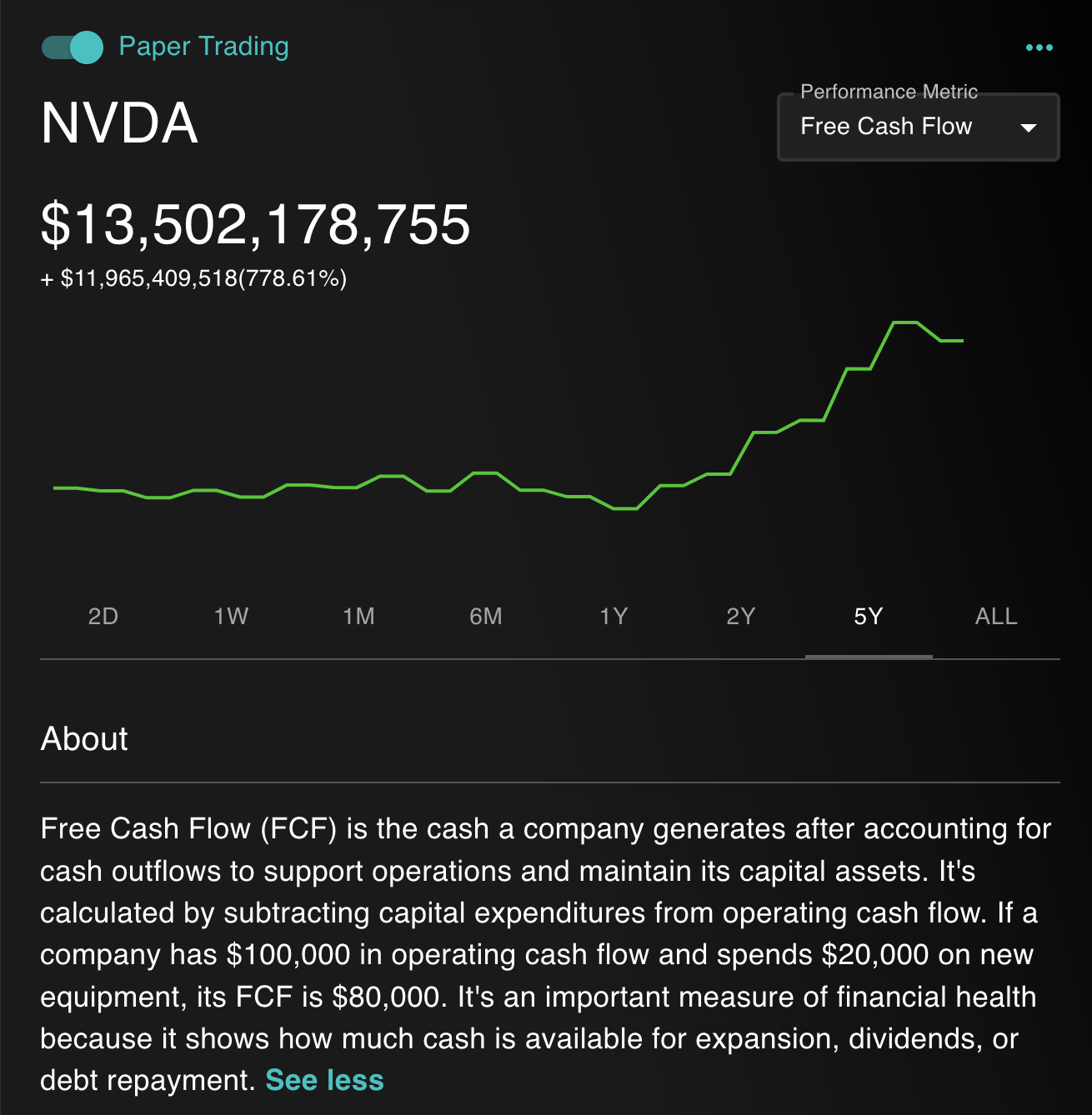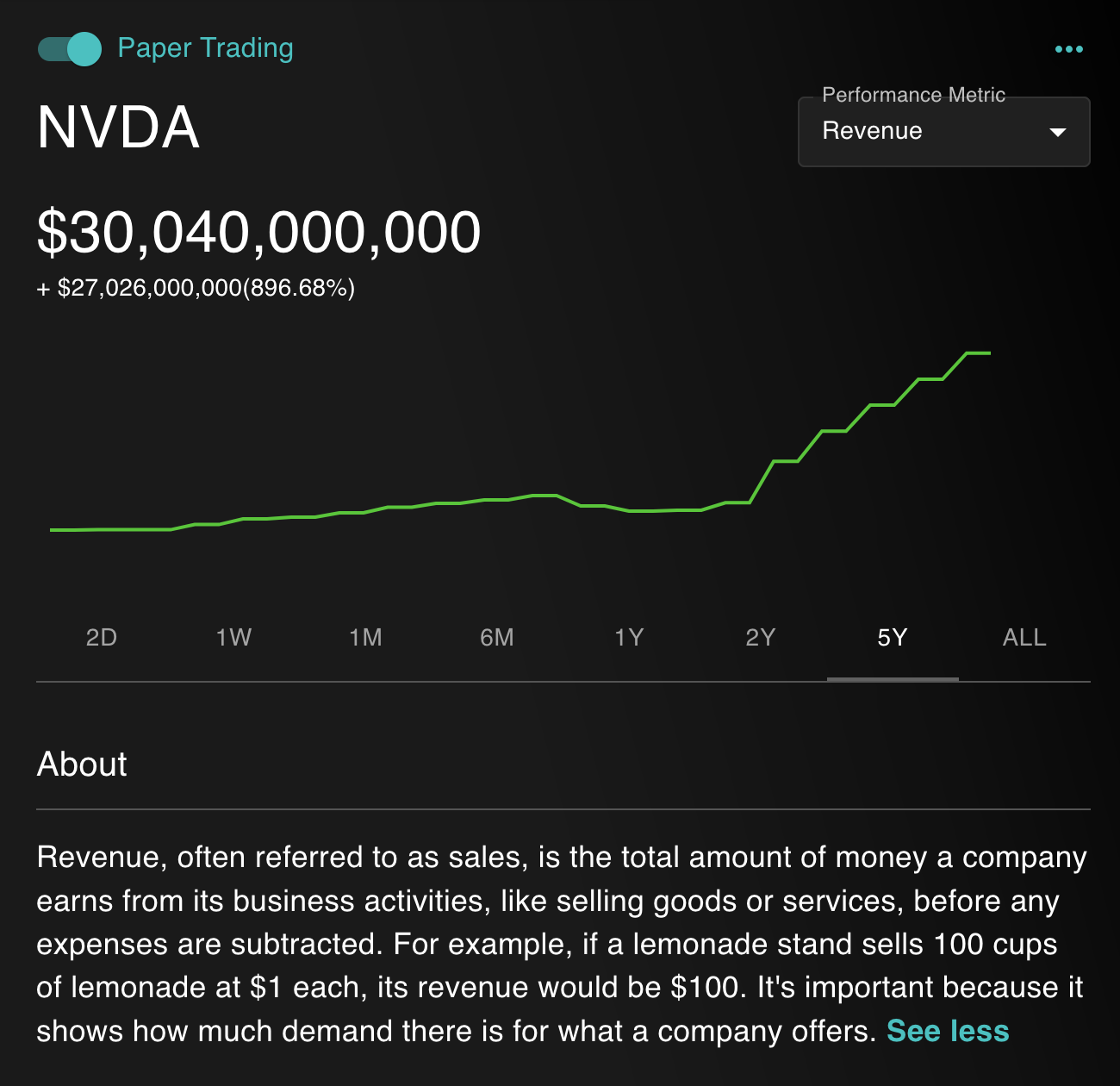Ease into investing
“Ease” being the key word. With automated tools like portfolio rebalancing and dividend reinvestment, Betterment makes investing easy for you, and a total grind for your money.
Exciting News: Paid Subscriptions Have Launched! 🚀
On September 1, we officially rolled out our new paid subscription plans at GuruFinance Insights, offering you the chance to take your investing journey to the next level! Whether you're just starting or are a seasoned trader, these plans are packed with exclusive trading strategies, in-depth research paper analysis, ad-free content, monthly AMAsessions, coding tutorials for automating trading strategies, and much more.
Our three tailored plans—Starter Investor, Pro Trader, and Elite Investor—provide a range of valuable tools and personalized support to suit different needs and goals. Don’t miss this opportunity to get real-time trade alerts, access to masterclasses, one-on-one strategy consultations, and be part of our private community group. Click here to explore the plans and see how becoming a premium member can elevate your investment strategy!
🗣 Stock Market Today: France Plans €60 Billion in Spending Cuts, Tax Hikes in 2025
The French government is targeting a reduction of the budget deficit from 6.1% to 5% of GDP next year through a mix of spending cuts and temporary tax increases. Officials disclosed that over two-thirds of the €40 billion adjustment would come from cuts in government ministries, local authorities, and the social security system, with the remaining funds generated through increased taxes on wealthy individuals and large companies, alongside a rise in green taxation. This announcement influenced the bond market, where the spread between French and German debt narrowed slightly, reflecting a tempered investor response to the fiscal strategy.

Facing a precarious political situation with a divided parliament, Prime Minister Barnier is anticipated to bypass parliamentary voting on the budget using a constitutional measure, due to the lack of a supportive majority. This action could prompt a no-confidence motion, especially with threats from different political factions, including potential opposition from within his centrist coalition against tax hikes that contradict previous pro-business policies. The budget proposal, set for debate on October 10, incorporates cautious economic growth forecasts and specific fiscal measures, reflecting the delicate balance Barnier must maintain amid ongoing political and economic challenges.
Stay informed with today's rundown:

Today, we will dive into “Everything you learned about stock market prediction is WRONG!" 👇
Here’s the regurgitated nonsense you’ll read in every single goddamn Medium article about stock prediction:
Learn introductory Python
Learn scikit learn, Matplotlib, linear regression and basic machine learning algorithms
Train a model
Make money while you sleep in your cabana in the Maldives
Here’s the problem with this approach.
It doesn’t fucking work.
You’re not predicting the stock market with daily stock data
Back before I even knew how to code, I was reading academic papers about how deep reinforcement learning could make insane returns in the stock market. The process was simple:
Collect a bunch of daily data
Train a RL model to take stock market actions for you
???
Profit!
Then, I learned how to code and put my skills to the test. I took a bunch of courses, including ones in reinforcement learning, machine learning in trading, and traditional software development courses. I even have a certificate from the University of Alberta. I worked hard to try to predict the stock market.
I was fooled by the plethora of online resources claiming how easy stock market prediction was.
And, even with the most complex algorithms and the most technical courses, I had to swallow this bitter pill.
Maximize Your Portfolio with These Free Daily Trade Alerts
Master the market in just 5 minutes per day
Hot stock alerts sent directly to your phone
150,000+ active subscribers and growing fast!
You are not predicting the tomorrow’s stock price. At least not with traditional, daily stock data.
How do you make money in the stock market then?
What nobody tells you is if you want to make money in the stock market, you have to radically change your way of thinking about the stock market.
Stocks aren’t just squiggly red and green lines where their price last week is going to tell you something about their price this week. They are businesses.
You know, like McDonalds, Walmart, and Microsoft.
These businesses generate money. If they are a good business, they generate so much revenue that it exceeds their expenses. That left over money can be used to grow the business further.
If they are a shitty business, their revenue is going to be less than the cost to operate the business.
This stuff MATTERS. You can’t look at a stock in isolation. You have to look at the bigger picture. THAT’S how you make money.
What about technical indicators?
What about them? Show me someone that isn’t selling a course or a private discord that has made money solely with technical indicators. Show me the rules they’re using so I can backtest them with NexusTrade, my AI-powered algorithmic trading platform.
I promise you, they are gonna be overfit garbage.
Does that mean technical analysis is absolutely useless? No! Strategies like momentum and mean reversion are actually a bit valuable. If a stock is going up recently, it’ll tend to continue its course, especially when sparked by a great catalyst. Similarly, a stock that’s trading in a range will tend to stay near its average (again, unless a shift in direction happens due to an external catalyst).
But these indicators don’t matter nearly as much as how the underlying business is doing.
Other than focusing on the business, what matters?
Now, you might be saying, “but GameStop is a shitty business. Why did it go up?”
Because it’s not as simple as “company makes more money => stock price increases”. It’s a lot more complicated:
The company’s market cap might be worth more than the money they are bringing in
The company may be overhyped with retail investors buying in mass
The broader economy might be fucked, and people may be selling stocks even though it is fundamentally a strong business
Above all, creating a trading plan (including with a well thought out risk-management system) matters the most
One thing is for certain. If you’re holding a fundamentally strong business, and they continue to outperform and over-deliver, that stock is going to eventually go up.
If You Missed A Premium Member Content Piece
Why?
Because the stock price is a reflection of the company! It is not a number derived from a random number generator. If a company is pulling in $1 trillion per quarter, it’s going to reflect in the stock price.
And if it doesn’t, the company is going to make it happen, by issuing share buybacks, giving their investors larger dividends, and investing into the company to make more money.
So sure, use your technical analysis voodoo magic. Run backtests from 1979 to 1999 (as if the stock market hasn’t fundamentally changed since then 🙄). Do whatever you want, but buy fundamentally strong stocks.
(Yes, ETFs like SPY, VOO, and QQQ count as “fundamentally strong)
Let’s look at an example
Don’t believe me that fundamentals of a business matter? Let’s compare two different meme stocks that the entire investing world knows about. GameStop (GME) and NVIDIA (NVDA).
For this comparison, we’re going to look at:
A few fundamental metrics like revenue, net income, earnings per share, and free cash flow
An AI-generated analysis of the company
The stock’s price
Before we dive in, lets make sure we’re on the same page about these definitions. They don’t teach us financial analysis in class (even though they should…)
Revenue: This is the total amount of money a business brings in due to business activities
Net income: This is the money left over after subtracting all costs from a business’s revenue
Free cash flow: This is the total cash generated after subtracting from cash outflows. It doesn’t include things like depreciation like net income
Earnings per share (EPS): A ratio of how much money shareholders would have for each share if they company distributed all of its net income
Now that we understand the definitions, let’s start with analyzing Reddit’s favorite meme stock.
Looking at GameStop’s fundamentals




GME’s fundamentals
Right off the bat, we notice a pattern with GME’s fundamentals… they aren’t growing.
Their revenue is decreasing (and has been for 5 years). Their free cash flow, net income, and earnings per share are also mostly flat.
From this, if we look at GME’s stock price, we’ll notice that its gains were not sustained.

GME’s price after its rally
This is because GameStop is not a fundamentally strong investment. While there are theories and rumors for how GME might turn its business around, the reality is that they have not yet materialized.
In contrast, let’s look at NVIDIA.
Looking at NVIDIA’s fundamentals




NVDA’s fundamentals
With barely a glance, we notice a glaring difference between GameStop and NVIDIA. NVIDIA is growing. Fast.
Its revenue, net income, free cash flow, and earnings per share are MUCH higher than what they used to be. This is reflected clearly in its stock price.

NVDA’s price after its rally
Unlike GameStop, NVIDIA’s rally has been sustained for good reason – its growing like an invasive wildflower resistant to pesticides. If people decided to sell NVDA stock, and NVIDIA continue their monstrous growth, the company could just issue a dividend or share buyback to bring everybody back.
For good measure, lets run an AI-generated analysis of both of these stocks, in case there’s something I missed. I won’t copy/paste the full response, but you can read it here.

Comparing GME to NVDA
GameStop: The company has faced challenges in maintaining profitability, but the positive net income in 2023 is a promising sign. However, the decrease in revenue is a concern.
NVIDIA: The company has demonstrated robust growth and profitability, particularly in 2023, with a substantial increase in revenue and net income.
Please remember that this analysis is based on historical data, and you should conduct your own research before making any investment decisions. For more detailed information, you can refer to the sources provided:
To follow up this analysis, I asked AI to rate these on a scale from 0–5.

Stock Evaluation rating generated from AI
As I hinted at earlier, GME’s earnings is a 2/5 and NVDA is a 5/5. That’s why GME’s stock has suffered after its meme-fueled rally, and NVIDIA is dollars away from its all time high.
THAT is the difference in buying a fundamentally strong stock.
Concluding Thoughts
70% of people you see given stock advice online clearly aren’t making money themselves with their advice. Another 28% are grifters, selling bullshit courses that they know won’t actually help you make any money.
I spent years to learn this lesson, but its not too late for you! Learn to drown out the noise and look at what actually matters.
I built NexusTrade to make this easy. Non-technical investors can test and deploy their own trading strategies, and even include rules based on fundamental data. They can also perform financial research to help them decide what a good investment is.
And this type of resource is important. If you try to predict the market doing the same thing that every Medium blogger does, you’re going to learn the hard way that they create those articles for views and clicks, not to generate value. Machine learning using OHLC doesn’t work. Period. You’re going to need a better, more robust method, and outside-the-box data sources to make it happen.
You can either believe me, or waste 3 years of your life failing to prove me wrong. The choice is yours.




